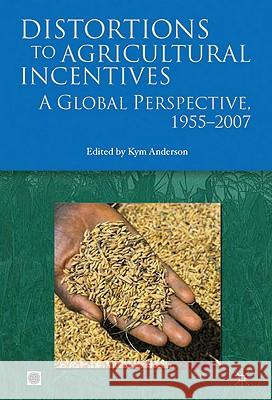Distortions to Agricultural Incentives: A Global Perspective, 1955-2007 » książka
Distortions to Agricultural Incentives: A Global Perspective, 1955-2007
ISBN-13: 9780821376652 / Angielski / Miękka / 2009 / 592 str.
Distortions to Agricultural Incentives: A Global Perspective, 1955-2007
ISBN-13: 9780821376652 / Angielski / Miękka / 2009 / 592 str.
(netto: 158,59 VAT: 5%)
Najniższa cena z 30 dni: 164,15
ok. 30 dni roboczych.
Darmowa dostawa!
The fifth and last volume in the 'Distortions to Agricultural Incentives' series focus on distortions to agricultural incentives from a global perspective. During the 1960s and 1970s most developing countries imposed anti-agricultural policies, while many high-income countries restricted agricultural imports and subsidized their farmers. Both sets of policies inhibited economic growth and poverty alleviation in developing countries. Since the 1980s, however, many developing countries began to reverse that policy trend. This book brings together the first-ever comprehensive and consistent set of estimates of the changing extent of those distortions over the past half-century. Those estimates show when each country s reforms began, how rapidly and completely they have progressed, how much of the improved incentives for farmers is due to reform of agricultural as compared with non-agricultural policies, which have overshot to become agricultural protectionists like many high-income countries, and to what extent an anti-trade bias remains. Also provided are analytical narratives of the evolution of farm versus non-farm policies in each of dozens of countries, covering in aggregate around 90 percent of agricultural output and 95 percent of the world economy. Such a comprehensive coverage exposes also the different degrees to which the key agricultural product markets have been and still are distorted. The book concludes with new estimates of the effects of reforms since the early 1980s and of current policies agricultural vs industrial on such things as global goods markets, national economic welfare, and net farm incomes in all the major developing and high-income countries."











